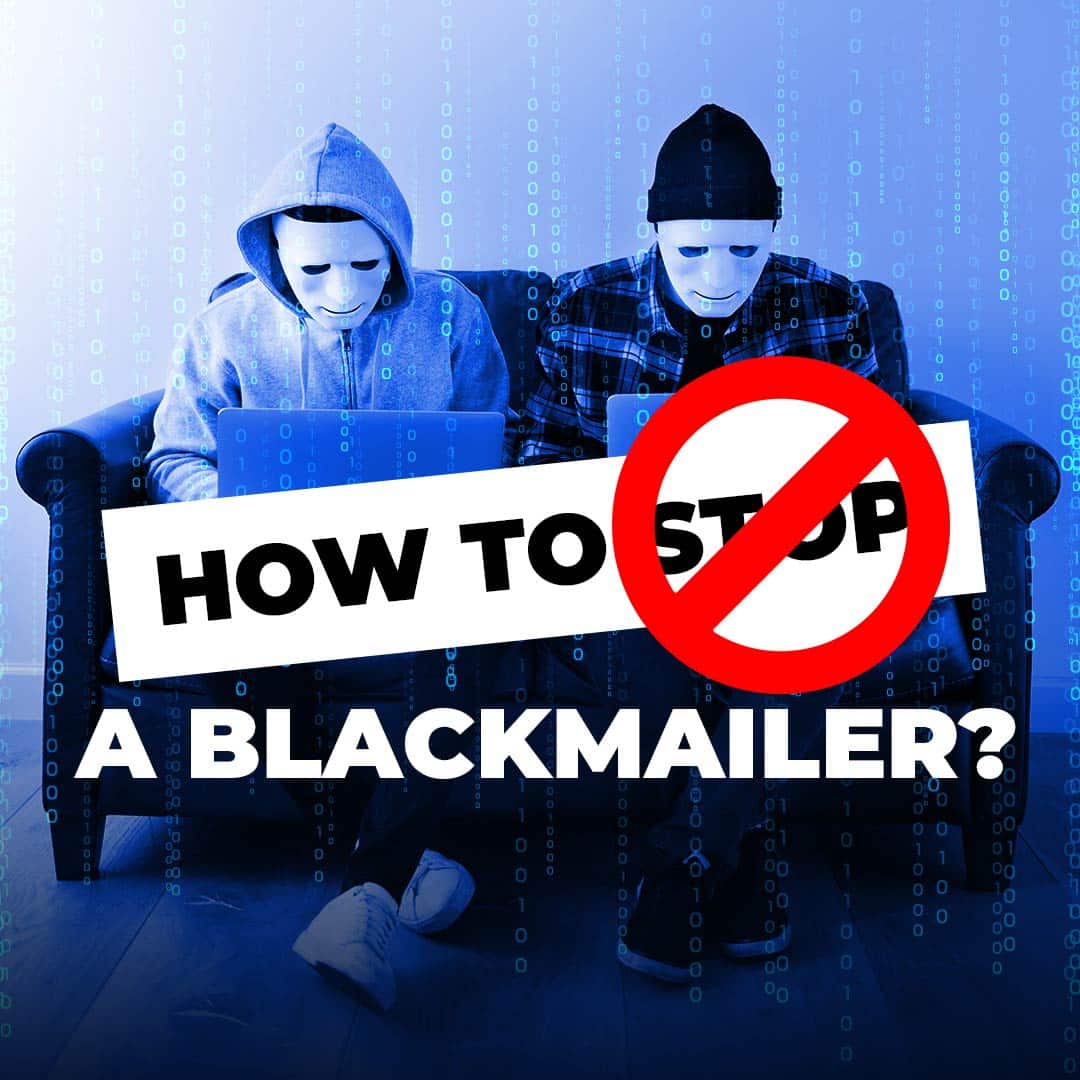If you’re facing the distressing reality of being a victim of blackmail, you’re not alone. Reports of blackmail cases have surged globally, leaving many feeling trapped and powerless. But there’s hope—this article will equip you with essential tips on how to stop a blackmailer and highlight key signs that indicate you might already be a target for different digital scams.
Five Early Warning Signs of Blackmail
Being blackmailed is a situation that no one wants to find themselves in. Unfortunately, it is not entirely uncommon, leaving many to ask how they can get out of blackmail. The first step is to recognize the signs that someone may be targeting you for their next blackmail scheme. Luckily, there are key signs to watch for. These signs of potential risk for blackmail can be subtle, but if you pay close attention to what is happening around you, you may be able to identify them before you find yourself in a situation where your blackmailer appears to have the upper hand.
The Signs:
- Conversation moving a bit too quickly: This sudden change in behavior could manifest as a complete 180 from someone you interact with online. They may begin pressing you for personal information or overly sharing their own private details or explicit images. This shift can also include mood swings or unexpected changes in their demeanor.
- Pushing for secrecy or confidentiality: One of the key tactics used by blackmailers is to exert pressure on their victims to keep the situation secret. They may insist that you must not tell anyone about what is happening, often using threats or intimidation to reinforce this demand. If someone constantly emphasizes the need for secrecy or confidentiality, particularly concerning sensitive or potentially damaging information, it could be a sign that they are trying to manipulate and control you through blackmail.
- Demanding money or favors: Blackmail often involves demanding financial compensation or favors to keep certain information or evidence hidden. If someone is pressuring you to provide them with money, goods, or services to ensure compliance they can threaten to expose you or threaten to release pictures of you in an effort to harm your reputation or personal life, it could be a clear indication of blackmail. They may use phrases like “pay up” or “do this for me, or else.
- Unusual surveillance or stalking: Blackmailers may engage in surveillance or stalking behaviors to gather more information about their victims and to create a sense of fear or vulnerability. If you notice an individual constantly monitoring your activities, following you, or showing up unexpectedly in various places, it could be a sign that they are gathering evidence to use against you later.
- Emotional manipulation and control: Blackmailers often employ emotional manipulation tactics to maintain control over their victims. They may use guilt, fear, or threats to keep you compliant and submissive. If you constantly feel anxious, fearful, or trapped in a situation where someone exploits your vulnerabilities for their gain, it could be a sign that you are being blackmailed.
What To Do If Someone Blackmails You?
Getting blackmailed is a terrible thing for anyone to deal with, and it is natural for anyone to react confused and have lots of questions on what to do next when this happens. There are many ways to get this situation under control and here is what to do if someone blackmails you:
Take these steps and stay focused:
- Do not comply with the perpetrator and do not pay them anything. If you pay them, it will only escalate the situation and they will likely increase their demands and continually ask for more money, or threaten you even more.
- Once you realize you are being blackmailed, do not delete anything, you must start collecting evidence that can be used against them in a court of law. This is a crime and the authorities will need everything they can use to prosecute them or extradite them to another country.
- Cease your communications with them and immediately start preparing and documenting evidence.
- Get help: Contact professionals like law enforcement, legal assistance, and cyber security.
There are several steps you can take to stop the blackmailer and get your life back
How to Stop a Blackmailer
Dealing with a blackmailer can be an overwhelming experience, but there are steps that you can take to regain control:
- Gather Evidence: Start by gathering any evidence of online blackmail, such as emails or text messages, and make sure to record any interactions with the blackmailer. This is crucial for later when you may need to substantiate your claims.
- Contact Authorities: Reach out to law enforcement or consult with a lawyer for guidance on how to get out of blackmail. They can help you understand how to proceed and may take action on your behalf.
- Do Not Comply: It is also essential not to give in to the blackmailer’s demands, no matter how tempting it may be. Paying off the blackmailer’s demands will only perpetuate the cycle of abuse. Instead, report the crime to the FBI’s Internet Crime Complaint Center and discuss available options with law enforcement.
- Seek Support: Don’t isolate yourself. Talk to trusted friends and family about what you are experiencing. Let them know what is happening to you. Remember, you are not alone, and this is not your fault. You are the victim of a severe crime, and it is okay to ask for help.
Now that you are equipped with information on how to stop a blackmailer when they reach out, the next step is to focus on safeguarding yourself and preventing future incidents. By taking proactive measures and being aware of your surroundings, you can significantly reduce the risk of falling victim to blackmail again.
Seeking Professional Counseling
Being a victim of blackmail can be a traumatizing and overwhelming experience. Whether it is due to leaked personal information or compromising images, the fear of exposure can be debilitating. It is essential to seek professional counseling to stop the blackmailer from causing further damage.
Professionals can provide a supportive and confidential space to discuss the situation and develop strategies to protect yourself. There is no shame in seeking help; it is a necessary step to start the healing process. Remember that you are not alone, and with the proper support and guidance, you can overcome this challenging situation and move forward with your life.
How to Get Rid of Your Blackmailer for Good
If you find yourself the target of a blackmailer, it’s crucial to take decisive action to regain control. One of the most effective ways to get rid of a blackmailer is through Digital Forensics Corp. We work with you to take away your blackmailers greatest weapon… their anonymity. Here’s how Digital Forensics Corp can assist you in this process:
Digital Forensics Corp. Deploys A Three-Step Process.
- Step 1: Geo-Location and Information Gathering
Our team utilizes advanced tracking tools to geo-locate your blackmailer. By gathering digital footprints, we can identify key information that may expose their identity. This step is vital because removing their anonymity significantly weakens their power over you and puts you in a better position. - Step 2: Interceding On Your Behalf
After locating your blackmailer, we act as intermediaries between you and the blackmailer. Our professionals will communicate directly with them, demanding proof that they have deleted any incriminating information, images, or videos. This not only applies pressure on the blackmailer but also reinforces your stance against their threats. - Step 3: Ongoing Support and Monitoring
After the immediate threat has been addressed, we provide ongoing support to ensure your safety. This includes monitoring your online presence and offering guidance on how to safeguard against future incidents. Our goal is to empower you to take control of your digital life and minimize the risk of retaliation from the blackmailer.
Preventing Future Blackmail
To safeguard against future blackmail, be mindful of your digital presence. Below is a list of steps you should diligently take to stop blackmailers from targeting you:
- Secure Your Accounts: Use strong passwords and enable two-factor authentication on all accounts.
- Be Cautious Online: Avoid clicking on suspicious links or sharing personal information with untrusted individuals.
- Limit Sharing Sensitive Content: Refrain from sharing compromising photos or videos, especially with those you don’t know well.
Don’t Let Blackmailers Control Your Life
Following the tips outlined in this article, you can start taking steps today to prevent and get rid of potential blackmailers. If you ever face a situation with a suspected blackmailer, it is critical to take precautionary measures such as collecting all evidence of communication, avoiding payment, and reporting the problem to authorities. If you feel overwhelmed when dealing with online blackmail, reach out to the Digital Forensics team right away. Our experts are by the phones 24/7 waiting to take your call today. Always remember you are not alone; and help is available.








Comments are closed.